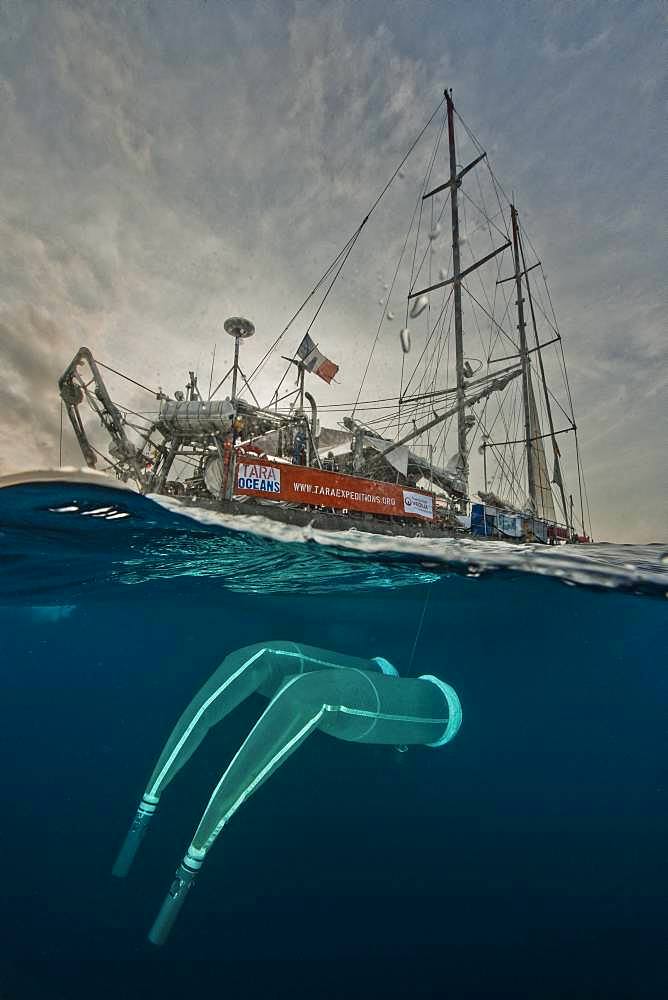Preview

Tara Oceans Expeditions - May 2011. Tara with deployed plancton nets. On "station", the boat is drifting without engine or sails. Tara Oceans, a unique expedition: Tara Oceans is the very first attempt to make a global study of marine plankton, a form of sea life that includes organisms as small as viruses and bacterias, and as big as medusas. Our goal is to better understand planktonic ecosystems by exploring the countless species, learning about interactions among them and with their environment. Marine plankton is the only ecosystem that is almost continuous over the surface of the Earth. Studying plankton is like taking the pulse of our planet. Recently, scientists have discovered the great importance of plankton for the climate: populations of plankton are affected very rapidly by variations in climate. But in turn they can influence the climate by modifying the absorption of carbon. In a context of rapid physico-chemical changes, for example the acidification observed today in the world's oceans, it is urgent to understand and predict the evolution of these particular ecosystems. Finally, plankton is an astonishing way of going back in time ? a prime source of fossils. Over the eons, plankton has created several hundred meters of sediment on the ocean floors. This allows us to go back in time, to the first oceans on Earth, and better understand the history of our biosphere. More than 12 fields of research are involved in the project, which will bring together an international team of oceanographers, ecologists, biologists, geneticists, and physicists from prestigious laboratories headed by Eric Karsenti of the European Molecular Biology Laboratory. Galapagos
| Image ID: | 860-287450 |
|---|---|
| Artist: | Christoph Gerigk |
plankton
fishing net
cloud
scientific research
sample
expedition
overview
backlighting
galápagos islands
tropical sea
pacific ocean
split view
may
take
water surface
nobody
tara
schooner
tara oceans
expedition
pelagos
aquatic species
species particularity
species
fishing tackle
fishing
activity
fauna use
natural resources use
sky
meteorological phenomenon
atmosphere
science
analysis
shot
light effect
ecuador
south america
america
sea
marine area
area
world sea and ocean
water
matter
matter
substance
individual
sailboat
boat
transport mean
transport
tara expedition
nature conservancy organization
environment awareness
environment
planktons
fishing nets
cloudy
clouds
cloudy sky
scientific researches
scientific studies
scientific study
samples
specimen
specimens
sampling
samplings
expeditions
overviews
global sight
global sights
full length
backlightings
backlit
galapagos islands
archipielago de colón
colon archipelago
columbus archipelago
tropical seas
tropical oceans
tropical ocean
over under shots
over under views
over under view
over under image
over under images
over under photo
over under photos
over under sight
over under sights
taking
taking away
water surfaces
watersurface
watersurfaces
with nobody